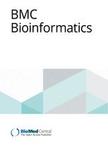版权所有:内蒙古大学图书馆 技术提供:维普资讯• 智图
内蒙古自治区呼和浩特市赛罕区大学西街235号 邮编: 010021

作者机构:European Inst Oncol Dept Expt Oncol I-20141 Milan Italy CNR Inst Informat & Telemat I-56127 Pisa Italy Univ Pisa Dipartimento Informat I-56127 Pisa Italy
出 版 物:《BMC BIOINFORMATICS》 (BMC Bioinform.)
年 卷 期:2012年第13卷第4期
页 面:1-18页
核心收录:
基 金:European Commission under the 7th framework program
主 题:Hybrid Model Therapy Session Stochastic Simulation Algorithm Propensity Function Adoptive Cellular Immunotherapy
摘 要:Background: Anti-tumor therapies aim at reducing to zero the number of tumor cells in a host within their end or, at least, aim at leaving the patient with a sufficiently small number of tumor cells so that the residual tumor can be eradicated by the immune system. Besides severe side-effects, a key problem of such therapies is finding a suitable scheduling of their administration to the patients. In this paper we study the effect of varying therapy-related parameters on the final outcome of the interplay between a tumor and the immune system. Results: This work generalizes our previous study on hybrid models of such an interplay where interleukins are modeled as a continuous variable, and the tumor and the immune system as a discrete-state continuous-time stochastic process. The hybrid model we use is obtained by modifying the corresponding deterministic model, originally proposed by Kirschner and Panetta. We consider Adoptive Cellular Immunotherapies and Interleukin-based therapies, as well as their combination. By asymptotic and transitory analyses of the corresponding deterministic model we find conditions guaranteeing tumor eradication, and we tune the parameters of the hybrid model accordingly. We then perform stochastic simulations of the hybrid model under various therapeutic settings: constant, piece-wise constant or impulsive infusion and daily or weekly delivery schedules. Conclusions: Results suggest that, in some cases, the delivery schedule may deeply impact on the therapy-induced tumor eradication time. Indeed, our model suggests that Interleukin-based therapies may not be effective for every patient, and that the piece-wise constant is the most effective delivery to stimulate the immune-response. For Adoptive Cellular Immunotherapies a metronomic delivery seems more effective, as it happens for other anti-angiogenesis therapies and chemotherapies, and the impulsive delivery seems more effective than the piece-wise constant. The expected synergistic e